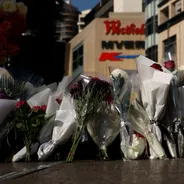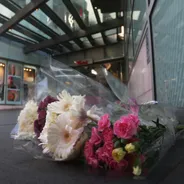The increasingly frosty relationship between America and Iran will have been causing distress to anyone with a nervous disposition. President Trump withdrew from the Iran nuclear deal last year in order to put sanctions on the country. In doing so, he has destabilised a delicate political situation which had brought together major world powers in an agreement which limited Iran’s nuclear capabilities.
However, Trump baited further hostility on Monday when he referred to a section of the Iranian army - the Islamic Revolutionary Guard Corps - as a “terrorist group”. Iran’s President Hassan Rouhani responded with a concerning warning.
“You use terrorist groups against the peoples of the region and yet claim to have been fighting terrorism?” Rouhani asked. “You are at the top of terrorism in the entire world.” He then added: "You know that we have developed missiles since last year until this year that are beyond your imagination.”

This was reported by Iran’s Fars News Agency and betrays an aggressive mindset towards the US from the Iranian president. Having agreed to repurpose and reduce its nuclear facilities, this statement could be interpreted as a clear sign of non-compliance in the nuclear deal which Iran signed in 2013. As for the capabilities of these missiles, Iran claimed in 2017 that they have missiles with a range of 1,200 miles (1,930 km). However, the worrying activity doesn’t stop there.
According to the Associated Press, Iranian lawmakers met for a parliamentary session on Tuesday wearing paramilitary uniforms and chanting "death to America". Supreme Leader Ayatollah Ali Khamenei, who was president of the country for most of the 1980s, praised the work of the Islamic Revolutionary Guard Corps (IRGC) and condemned the US, stating that “evil designs” would not harm them.
“You have done everything imaginable,” Rouhani stated in his unofficial address to the United States. “You wanted to tell the Iranian nation that we do not have any red lines, you wanted to say that we also kill children, you wanted to say that we also kill women.”

He also pointed to the downing of Iran Air Flight 655, which was taken down by US forces in 1988. Following the incident, Vice President George HW Bush stated: “I’ll never apologise for the United States of America, ever. I don’t care what the facts are.” Two hundred and ninety civilians died in the attack, including sixty-six children. In a matter of months, Bush would be president.
“After shooting down our airliner, you claimed that you mistook it for an F-14 fighter, which is a childish claim,” stated Rouhani. “With this terrorist act, you wanted to say that you do not consider any red lines and kill women and children.” He added: “Your message was to support terrorism in the region.”
Trump said his designation of the elite fighting force: "makes crystal clear the risks of conducting business with, or providing support to, the IRGC ... If you are doing business with the IRGC, you will be bankrolling terrorism."

In addition to a number of foiled plots against the US and its allies, the administration made reference to the 1996 Khobar Towers bombing in Saudi Arabia which left 19 American servicemen dead.
The Israeli Prime Minister Benjamin Netanyahu praised Trump’s branding of the IRGC in a tweet. The Middle Eastern country has a difficult relationship with a number of its neighbours and Netanyahu took the opportunity to reinforce his stance on Iran: “Thank you for answering another one of my important requests, which serves the interests of our country and the countries of the region.”
America has historically had a fraught relationship with the nation of Iran, the 1953 Iranian coup marking the first time the US attempted to overthrow a foreign political regime during peacetime. The overthrowing of Prime Minister Mohammad Mosaddegh, in favour of the monarchical rule of Mohammad Reza Pahlavi, was in the political and economic interests of the United States and United Kingdom, who also intervened.

Over the ensuing half a century, through hostage situations, terror attacks and open hostility, Iran would continue to have a fractious relationship with the US. Following the 9/11 attacks, George W Bush famously referred to Iran, Iraq and North Korea as an “axis of evil”. Aerial surveillance operations, launched from Iraq in which the US now had a foothold, repeatedly provided no new information.
There are continuing concerns in the global community regarding democracy, diplomacy and human rights in Iran. World powers have continually questioned whether the country is stable enough to hold a nuclear deterrent. However, with the leaders of both the US and Iran publicly flexing their military muscles, it seems that perhaps neither country should be trusted with such an arsenal.












